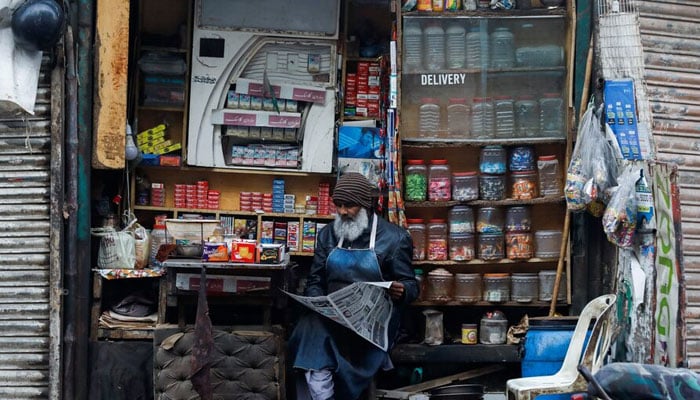Testing the budget
Proposed budget is non-starter because it fails to enforce a minimum wage sufficient for low-income household
June 11, 2025

A real-life test of a former Pakistani finance minister is still remembered for highlighting the gap between the annual national budget and a powerful reality on the ground.
As the former finance minister who also happened to be a technocrat faced a volley of questions during a post-budget press conference, one question left him clearly baffled. "You have announced a minimum salary for a household. Can you give us the breakdown of how that amount can take an average family through a month?" asked a young reporter.
"I don't think you understand the budget. Of course, a minimum salary will take them [through a month]", said the visibly confused minister without elaborating, before being rescued by the usual minders at hand to conveniently help the dignitary move on to the next question.
The glaring gap amply demonstrated in that memorable episode is remembered a few decades later, underlining a fundamental gap between the government’s annual economic plan and reality across Pakistan. As Prime Minister Shehbaz Sharif’s government announced its latest budget yesterday, the gap between imagination and reality remains well in place.
For months, Sharif’s government has repeatedly taken credit for inflation falling to a record low in recent memory. But it was no more than a half-truth, perhaps worse than the absence of truth.
For the record, recent inflation trends followed some of the worst annual inflation numbers from 2022 onwards until early last year, before tapering off. This reality fails to hide the damage already done to low-income households in recent years. Across Pakistan, the community of up to 100 million Pakistanis who live in near-squalor-like conditions have made real-life cuts to their home budgets as they tightened their belts during the peak of high inflation. Some were reportedly forced to trim down their already marginal food expense or minimal healthcare costs, while others were forced to cut back their already meagre expenditure on educating their children.
Given the regressive trends prevailing across Pakistan’s society, it is likely that girls suffered more than boys in bearing the brunt of tightening expenditures on schooling.
Against this background, Pakistan’s latest budget has few benefits for the already impoverished. They will remain far from gaining immediate access to fundamentally needed social services. These notably include a 24-hour flow of clean drinking water, access to quality schools, and the absence of even a half-acceptable quality of health services.
Besides, the impact of climate change across Pakistan will hardly help to lift the lives of disenfranchised Pakistanis, who battle an increasingly grim reality on a daily basis. Notably, those who rely on Pakistan’s agricultural sector must brace for a downturn in their own economies, reflecting nationwide trends.
Meanwhile, as Pakistan remains caught in a tightly managed IMF programme, the writing on the wall is much too visible. The IMF-driven cuts on government expenditure to reduce the budget deficit must consequently induce a qualitative and quantitative lowering of focus on Pakistan’s most vulnerable communities. At the same time, Pakistan needs to radically shift its developmental priorities from building new motorways or fast trains as planned.
The required changes are necessary to renew the focus on Pakistanis who are impoverished across the grassroots. As the present financial year draws to a close this month (June), the economy’s performance during the past twelve months says much about the urgent need to change Pakistan’s direction. The mediocre performance of agriculture and large-scale manufacturing during this time must suggest a significant fall in opportunities for work to support low-income Pakistanis.
The question of announcing a realistic minimum monthly wage must be at the centre of thinking surrounding the future of the economy. For too long, Pakistan’s budget-makers have remained immune from being driven by the needs of the poorest of the poor. The number of poverty-stricken Pakistanis is estimated at about 100 million people or roughly just below 40% of the population. Mobilising this community to join Pakistan’s engine of growth actively must remain central to future policymaking.
One area at the centre of lifting the lives of the poorest of the poor remains tied to the non-enforcement of minimum wages across Pakistan. Failure to enforce a minimum salary will continue fuelling the disconnect between successive budgets, including the one presented this week, and conditions surrounding impoverished Pakistanis.
As Pakistan’s outlook remains surrounded by multiple challenges, the budget this week has fallen short of passing a critical test. Simply put, the budget is a non-starter because it fails to enforce a minimum wage that is convincingly sufficient for a low-income household.
The writer is an Islamabad-based journalist who writes on political and economic affairs. He can be reached at: [email protected]
Disclaimer: The viewpoints expressed in this piece are the writer's own and don't necessarily reflect Geo.tv's editorial policy.











